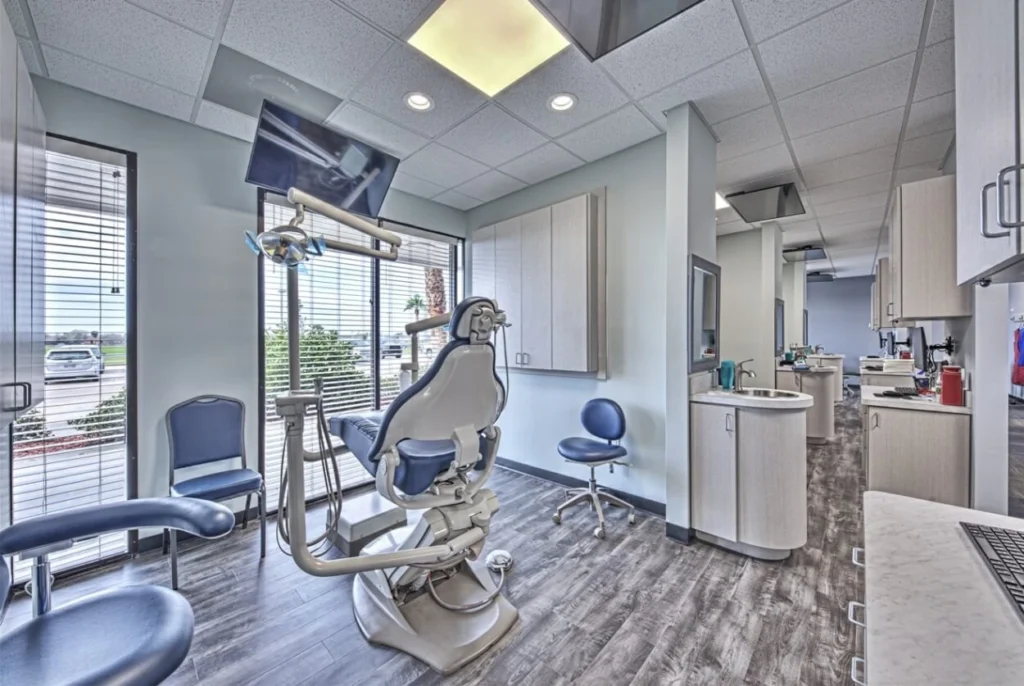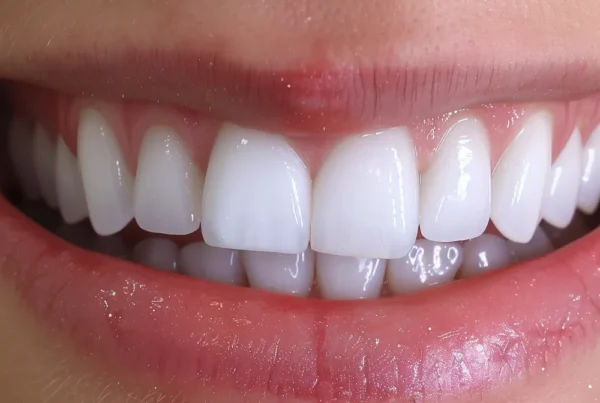Getting dental implants can feel overwhelming, but knowing what to expect makes everything so much easier. Think of recovery milestones as little victories along the way. Your dental team will help you track these checkpoints to make sure everything’s healing properly.
The first big win usually happens within the first few days when swelling and bleeding start to calm down. You’ll probably notice things feeling better each morning. Another exciting milestone is when you can finally eat something more substantial than soup and smoothies.
Here’s the thing though, if you’re not hitting these milestones, don’t panic. Sometimes healing takes longer, or there might be a small issue that needs attention. Maybe the swelling isn’t going down like it should, or you’re feeling more pain instead of less.
That’s exactly why staying in touch with your dentist matters so much. They can spot problems early and fix them before they become bigger headaches. Trust me, it’s way better to call with a question than to wonder if something’s wrong.
The Three Phases Every Patient Goes Through
Recovery happens in stages, and each one is important for different reasons. Think of it like building a house, you need a solid foundation before you can put up the walls. Your implant recovery works the same way.
Right after surgery, your main job is protecting that surgical site. This means eating soft foods, taking it easy, and keeping everything super clean. I know it’s tempting to test things out, but patience really pays off here.
The middle phase is when the magic happens, your implant starts bonding with your jawbone. You can’t see it happening, but your body is working hard to make that implant part of you. Your dentist will check on this process during follow-up visits.
Keeping an Eye on How You’re Healing
Your body will tell you a lot about how recovery is going if you know what to listen for. Some swelling and discomfort right after surgery is totally normal, your body is just responding to the procedure.
What you want to see is gradual improvement each day. Less swelling, less pain, and generally feeling better as time goes on. Most people find the worst part is over within the first week.
But there are some red flags to watch for. If swelling gets worse instead of better, or if you notice the implant feeling loose, that’s when you need to call your dentist right away. Same goes for numbness that doesn’t improve or pain that keeps getting worse.
Managing Health Issues That Affect Healing
If you have diabetes, heart disease, or other health conditions, you’re not out of luck – you just need to be a bit more careful. These conditions can slow down healing, but working with your medical team makes a huge difference.
Diabetic patients need to keep blood sugar levels steady during recovery. High blood sugar can really interfere with healing, so you might need to check your levels more often or adjust medications temporarily.
People with osteoporosis or bone density issues might need extra support for their implants to integrate properly. Your dentist might work with your doctor to adjust bone medications or add supplements during healing.
Eating well becomes super important when you’re healing from surgery. Your body needs protein for tissue repair, vitamin C for gum healing, and calcium for strong bones around the implant. Even if you’re stuck with soft foods for a while, you can still eat nutritiously.
Staying Connected With Your Dental Team
Good communication with your dentist can make or break your recovery experience. The best practices make it easy for you to reach out when you have questions or concerns. Don’t feel like you’re bothering anyone, they want to hear from you.
Most offices have an after-hours number for emergencies, plus regular office hours for non-urgent questions. Some even offer text messaging or patient portals where you can send photos or ask quick questions.
Here’s what makes communication work best during recovery:
- Keep a simple log of your pain levels and any symptoms you notice
- Take photos of the surgical area if something looks different than expected
- Don’t wait until your next appointment if you’re worried about something
- Ask questions during follow-up visits, even if they seem obvious
Regular check-ups aren’t just about looking at your implant, they’re chances to discuss how you’re feeling and adjust your care plan if needed. Your dentist might change your diet recommendations or modify your oral care routine based on how you’re healing.

Celebrating Your Recovery Wins
Recovery milestones are like little celebrations along the way to your new smile. The early ones happen fast, less bleeding, less swelling, and being able to sleep more comfortably.
One of the best milestones is when you can start eating normal foods again. Going from soup and yogurt to being able to bite into an apple feels amazing. Your dentist will guide you through this transition to make sure you don’t rush things.
The biggest milestone is complete healing and osseointegration. This takes a few months, but it’s when your implant becomes truly part of your jaw. You’ll know you’ve reached this point when everything feels natural and comfortable.
If things aren’t progressing as expected, don’t worry too much. Sometimes healing takes longer, or there might be a minor issue that needs addressing. The key is catching problems early when they’re easiest to fix.
Learning Resources That Actually Help
Nobody expects you to become a dental expert overnight, but having good information makes recovery so much smoother. The best dental practices provide resources that actually make sense to regular people.
Online patient portals are becoming really popular because you can access information anytime. You can review your treatment plan, read about what to expect next, or even message your dental team with questions.
Look for practices that give you practical guides about daily care during recovery. The best ones include photos and step-by-step instructions for cleaning around your implant site. They’ll also tell you exactly which foods are safe and which ones to avoid.
Simple Ways to Prevent Problems
Prevention really is easier than treatment, especially with dental implants. The good news is that most problems are totally preventable with the right approach and consistent care.
Regular dental visits become your best friend after getting implants. These aren’t just cleanings, your dentist is checking for early signs of problems and keeping your implants in great shape. Most implant patients do best with visits every 3-4 months.
Your home care routine needs to be on point, but it doesn’t have to be complicated. The right toothbrush, floss, and mouth rinse make all the difference. Your dental team will show you exactly how to clean around your implants effectively.
These prevention strategies work best for long-term success:
- Quit smoking if you haven’t already, it’s huge for implant health
- Wear a night guard if you grind your teeth while sleeping
- Stick to your follow-up schedule even when everything feels fine
- Keep managing any health conditions like diabetes or heart disease
Lifestyle choices during recovery matter too. Getting enough sleep, managing stress, and eating well all support your body’s natural healing processes. It’s not about being perfect, just making good choices most of the time.
Your Path to Implant Success
Recovery from dental implant surgery is definitely a journey, but it’s one with a great destination. Here at Fountain of Youth Dental in San Antonio, we’ve helped hundreds of patients through this process, and we know what works.
The key is having a good team in your corner and knowing what to expect. Every patient is different, so we customize your aftercare plan based on your specific needs and health situation.
When you combine good professional care with taking care of yourself at home, success rates are really high. Most of our patients tell us the recovery was easier than they expected, especially when they knew what to watch for and had support along the way. Schedule your consultation today.
Frequently Asked Questions
How long does recovery from dental implant surgery take?
Most people feel pretty normal within a week, but complete healing takes several months. The implant needs time to bond with your jawbone, which is what makes it so strong and permanent. Your personalized recovery plan will give you a better timeline.
Is it normal to feel pain after dental implant surgery?
Some discomfort is totally normal and usually manageable with over-the-counter pain medication. If pain gets worse instead of better, or doesn’t respond to medication, give your dentist a call and they can help figure out what’s going on.
What are the signs that my dental implant isn’t healing properly?
Watch for increasing pain, swelling that gets worse instead of better, or any movement in the implant. These aren’t necessarily serious problems, but they do need professional attention to get back on track.
Contact Fountain of Youth Dental today to schedule your consultation with Dr. Cappetta. With Fountain of Youth Dental, you can stop settling and finally get the healthy, stunning smile you deserve!
See More Reviews From Fountain of Youth Dental. View information about local places in our community.
Schedule Your Free Consultation Today!
Fountain of Youth Dental
5282 Medical Dr. #520 San Antonio, TX 78229 (210) 614-5481 Driving Directions
Related Services
Same-Day Dental Implants – Dentures with implants – Full Mouth Dental Implants – Mini Dental Implants – Zirconia Dental Implants
For more ways to repair or replace missing teeth, explore our Restorative Dentistry tips and check out our latest dental implant tips.





